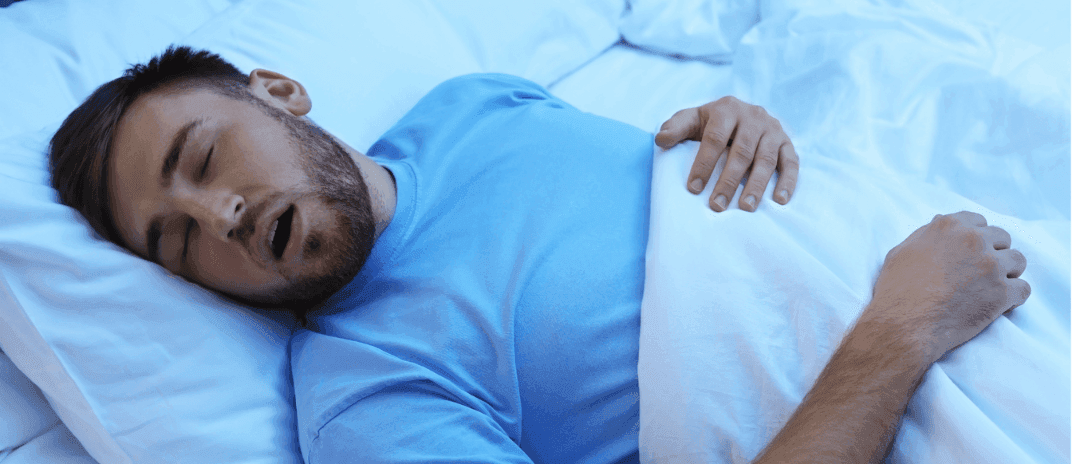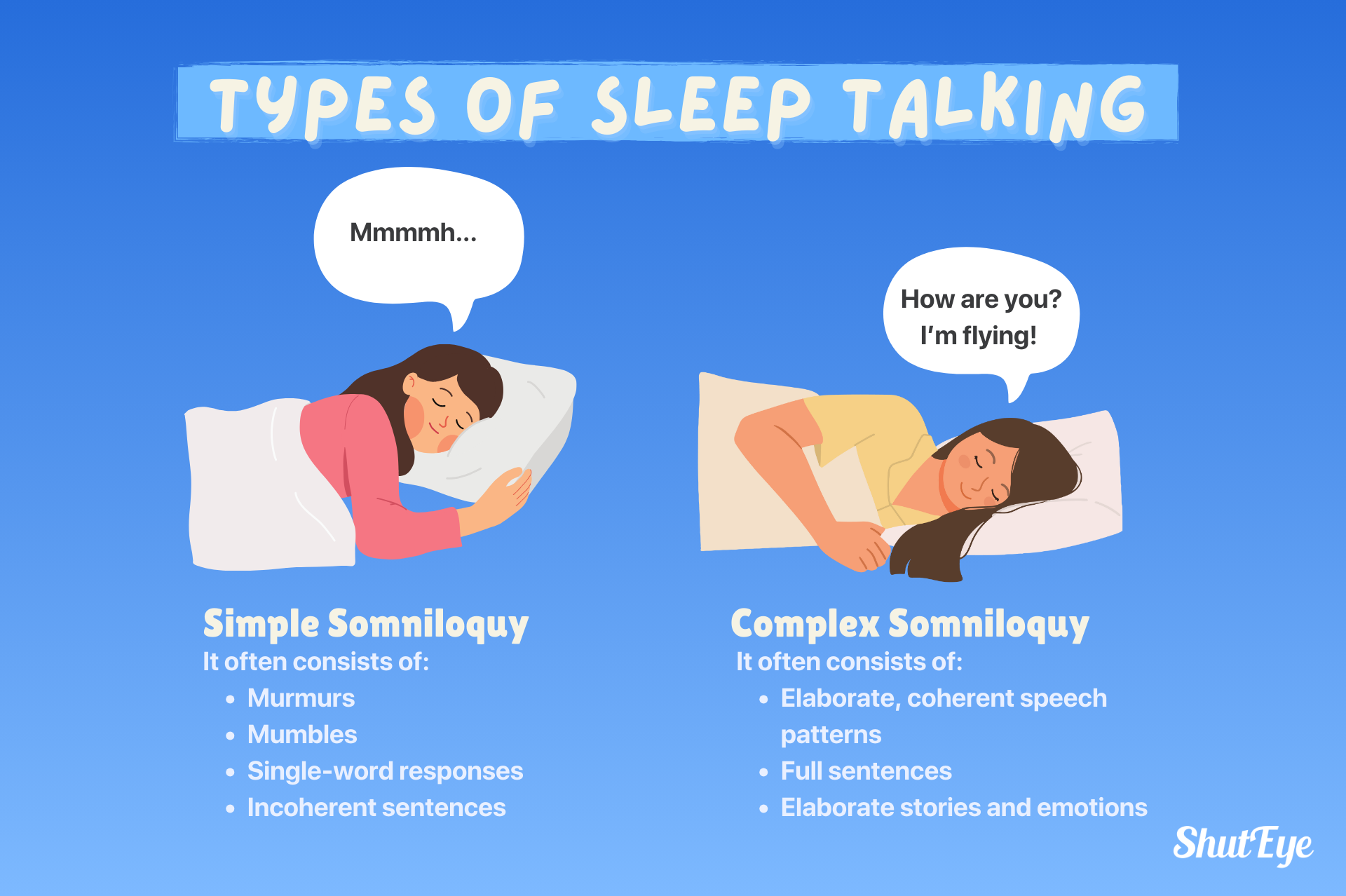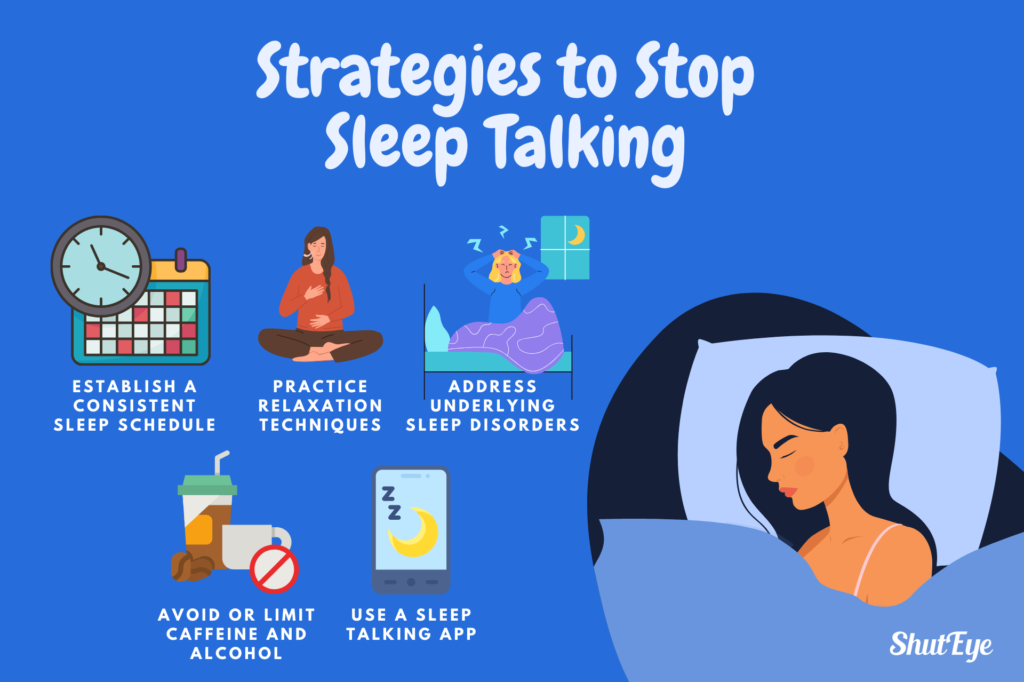


Have you been talking in your sleep without realizing it? Or perhaps, you have been woken up by a partner talking in their sleep, unknowingly. Sleep talking is a common occurrence among adults and children. While it may be rather embarrassing, it is not anything dangerous.
In this article, we will explore the causes of sleep talking, the types of sleep talking, symptoms, health implications, and treatment options.

Sleep talking, also known as somniloquy, is a sleep disorder in which someone talks while they are sleeping. It is prevalent in both adults and children, with statistics indicating that 60 to 65% of individuals will experience this phenomenon in their lifetime [1].
People commonly think that talking in your sleep only occurs while dreaming. But, sleep talking occurs at any sleep stage. It typically occurs during either non-rapid eye movement (NREM) sleep or rapid eye movement (REM) sleep.
Scientists are still unclear about the reason why this phenomenon happens though research shows that it is associated with genetics.
The causes of sleep talking could be attributed to many different factors. For instance, some people sleep talk when they are facing mental health conditions such as post-traumatic stress disorder (PTSD), depression, or anxiety. It can also happen to some children when they are experiencing nightmares [2].
Sleep talking may also be associated with sleep apnea or other parasomnias such as sleepwalking or sleep terrors.

From simple murmurs to complex dialogues, sleep talking encompasses a spectrum of vocalizations that occur during the different stages of sleep. Here are the two types of sleep talking:
Characterized by brief and uncomplicated utterances, simple somniloquy often consists of murmurs, mumbles, single-word responses, or a few sentences that may be incoherent. This is the most common type of sleep talking that people would experience.
In contrast to simple somniloquy, complex somniloquy is much more elaborate and consists of coherent speech patterns. Those who experience complex somniloquy may find themselves engaging in full conversations, being able to tell stories, or expressing certain emotions with depth and clarity.
Sleep talking can range from mumbling to having a full conversation. It can happen as you are transitioning from wakefulness to sleep or vice versa. Here are some common symptoms associated with sleep talking:
When it comes to sleep talking, it varies between children and adults because, for one, they both have different sleep patterns and behaviors. Here are some key distinctions between the two:
As mentioned, sleep talking is typically harmless but it can still have some health implications when it starts to interfere with sleep quality. Here are some potential health implications of sleep talking.
Sleep talking can disrupt sleep for both the individual who is talking and their sleep partner. Frequent or loud vocalizations may lead to sleep disturbances, which results in fatigue and sleep deprivation.
For individuals who share a bed with a sleep talker, the vocalizations may cause disturbances or discomfort, leading to strained relationships or conflicts. This can affect the quality of interpersonal relationships and overall well-being.
In some cases, sleep talking may be a symptom or precursor of underlying sleep disorders such as sleepwalking, night terrors, or REM sleep behavior disorder. These disorders can potentially pose safety risks and may require further evaluation and management by a healthcare professional.
Sleep talking may be influenced by psychological factors such as stress, anxiety, or unresolved emotions. Persistent or disruptive sleep talking may warrant consideration of underlying psychological concerns and may benefit from counseling or therapy interventions.
Chronic sleep talking may affect the way you function during the daytime. You may experience poor cognitive functioning, poor mood regulation, and excessive daytime sleepiness that ultimately takes a toll on overall well-being.
In this case, individuals who experience frequent sleep-talking episodes may benefit from strategies to improve sleep hygiene and optimize sleep quality.
For sleep talkers, it is often a frustrating and embarrassing problem to deal with. Such individuals may wonder whether it is a permanent problem that will persist or whether it will go away eventually.

Individuals who find that they are unable to reduce sleep talking or get rid of it completely may need to figure out the factors that are influencing the persistence of this and possibly seek appropriate interventions, if necessary.

If you want to know how to stop sleep talking, look no further. Here are some tips that we recommend you to try:
If for some reason, sleep talking occurs suddenly or it comes with intense fear or violent actions, you may want to consider consulting a sleep specialist. It is best to get a proper diagnosis rather than to self-diagnose.
If your bed partner happens to be a sleep talker and is constantly keeping you up at night, you may want to consider these tips to improve your sleep quality next time.
In summary, while sleep talking may be embarrassing and understandably so, it is typically harmless. By understanding what it is and the different types of strategies to manage the symptoms, you can regain control of your sleep and ensure that you get a good night’s rest!
American Academy of Sleep Medicine (2020) Sleep Talking [online]. Available at: https://sleepeducation.org/sleep-disorders/sleep-talking/
Ratan, NM (2024) Causes of Somniloquy (Sleep Talking) [online]. Available at: https://www.news-medical.net/health/Causes-of-Somniloquy-(Sleep-Talking).aspx